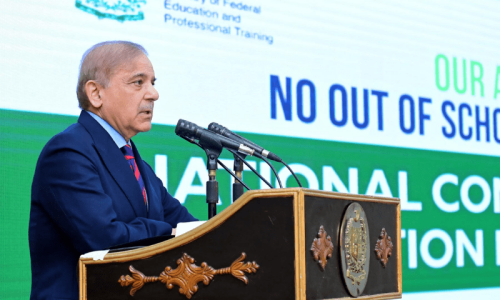AMID the pressing need to confront climate change, the emergence of carbon markets has gained prominence. In these markets, industries acquire the privilege of emitting carbon dioxide by committing to safeguarding forests or implementing other offsets. Although widely seen as a potent tool for conservation, apprehensions persist regarding its potential adverse effects on local communities, particularly in developing nations where mangroves face clearance for profitable endeavours such as fish and shrimp aquaculture or real estate development.
The term ‘blood carbon’ describes the dark side of these carbon trading schemes. The aggressive land acquisition strategies employed by certain entities have raised concerns about the unjust eviction of indigenous communities from their ancestral lands. The Ogiek people’s plight in Kenya serves as a stark reminder of the human cost associated with these carbon credit initiatives.
For example, in the pursuit of carbon credits, a UAE-based firm has been criticised for embarking on an extensive land acquisition initiative for mangrove plantation and conservation. This programme spans multiple African nations, including Kenya, Zimbabwe, Liberia, Zambia, and Tanzania, and has drawn the attention of environmentalists and human rights activists, raising concerns about potential displacement of indigenous people.
There is a call for a paradigm shift in carbon credit systems.
The characterisation of current events as a contemporary form of colonialism has stimulated ethical deliberations on the prioritisation of carbon sequestration initiatives over the well-being of vulnerable communities. A striking illustration of this concern unfolds with the ongoing predicament of the Ogiek people in Kenya’s Mau Forest. Kenyan President William Ruto, justifying their coerced displacement, presents it as a climate-driven measure to safeguard the forests from what he deems “illegal settlers”. This justification has triggered profound ethical debates regarding the potential adverse impact of carbon sequestration efforts on marginalised communities, with some activists drawing parallels with a modern form of colonial exploitation.
The Ogiek, acknowledged as the traditional custodians of the Mau Forest, have endured violent evictions and land seizures spanning decades. Despite legal triumphs, including a 2017 ruling by the African Court on Human and Peoples Rights affirming their land rights, the Kenyan government has drawn criticism for persistently flouting these judgements.
The situation faced by the Ogiek is not isolated; it mirrors the struggles of numerous first nation communities globally. These communities find themselves fighting not only for their lands but also against the exploitative mechanisms of carbon credit trading. The term ‘blood carbon’ aptly captures the injustice and human rights violations associated with these schemes.
In Pakistan, for the first time Sindh Forest Department has entered into a carbon credit agreement, selling 3.1 million credits valued at $40m to the Delta Blue Carbon company. The 60:40 partnership prompts questions about transparency and inclusiveness, especially considering that a significant portion of the population in the mangroves of the Indus deltaic districts lives below the poverty line. The fate of these communities remains uncertain, echoing the concerns raised by the Ogiek people in Kenya. Similarly, questions arise as to whether there was a proper tendering process, encouraging competition and giving enough leverage to local stakeholders.
Recent research underscores the critical role that mangroves play in sequestering carbon dioxide. Daniel Donato from the US Department of Agriculture’s Forest Service reveals that mangroves store around three to four times more carbon per hectare than rainforests in temperate or tropical zones. However, the rapid loss of these ecosystems, estimated at a third to half globally in the last 50 years, releases substantial quantities of greenhouse gases, equivalent to up to 10 per cent of the global toll from deforestation.
In light of these challenges, there is a call for a paradigm shift in carbon credit systems. Rather than trading carbon as a financial commodity on global markets, the focus should be on rewarding indigenous communities and land managers for their ecosystem services.
The story of ‘blood carbon’ highlights the need for a more equitable and just approach to climate change mitigation. Instead of evicting traditional landowners like the Ogiek, the world should recognise and compensate them for the invaluable services they provide in combating climate change. It’s time to move away from the exploitative carbon credit system and embrace a model that prioritises environmental justice and community well-being.
The writer is an expert on climate change and development and founder of the Clifton Urban Forest.
X: @masoodlohar
Published in Dawn, March 19th, 2024











































Dear visitor, the comments section is undergoing an overhaul and will return soon.